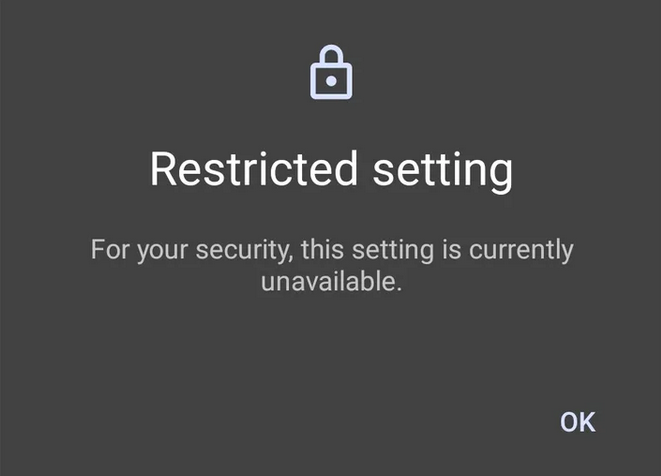Imposed Technology
Why are we in this mess?

With the rapid increase of accessibility to personal technologies, the public of personal computers has changed significantly, nowadays the market has moved away from making delicate and elegant functional software for those in the know, such as professionals who want to get stuff done and enthusiasts who want to get the best out of their machines, to the humble average Joe.
Nowadays, mass-produced personal technology isn't made for people who actually know what they're doing, the users are perceived as naive, unskilled, inexperienced and consequently vulnerable to exploitation, so there's a whole new layer of making the software fool-proof and exploitable in order to make the technology profitable.
One might think that because this change only directly affected big companies, it wouldn't affect the market of independent developers, but it does, if you ever had the displeasure of using a proprietary "digital marketplace", such as the Play Store, App Store or the Microsoft Store, you definitely noticed that the developers and small companies there are just as scammy (Programs are filled with Ads, paywalls annd scams) and willing to over-simplify their software as the big companies are. Goodwilled developers might find refuge in alternative free software marketplaces such as Github or F-Droid.
To big tech companies, making fool-proof software requires making the software the most immutable and unhackable as possible. Meaning the days of customizable technology must be made bygones in order of making it fool-proof. It used to be that what everybody has in their offices and bedrooms nowadays was meant for professionals only, meaning only actual good technology would sell, but because of this recent shift in the market, big tech companies aren't really interested in making great usable software anymore, instead, they're actually focused on creating what we'll refer as imposed technology, that is, technology that is unhackable, unreliable (in order to make it exploitable) and forced down the user's throat.
Phones for example, are used by pretty much everyone today, but have you noticed how they're less and less hackable each day? Have you noticed the shift from fully rootable and hackable phones to no headphone jack phones? This happened because big tech companies advertised bluetooth headphones as progress, innitialy, they were optional, now, depending on the device, they're the only kind of headphones you can use. This happens constantly with imposed technologies, they're first advertised as optional innevitable progress, but as time goes on, they become a mandatory chore.
Not to mention how wired headphones increase user freedom, are overall better quality, are more long-lasting, are less invasive with normal human life and ironically, use less technology, as opposed to the vapid nature of bluetooth headphones. This serves as a clear example of the direction that today's mainstream technology is leaning towards, not only it's as immutable as possible but also the technology isn't even the product anymore, it's the consumers.
Fools and Hackers

Imagine if rocket engineers sacrificed the quality of their crafts in order of making rockets user-friendly and intuitive to the average person? That would be sheer insanity right? Well, that's partially the direction modern technology is going for.
Consider this excerpt from the book The Hacker's Diet:
Bob Bickford, computer and video guru, defined the true essence of the hacker as
"Any person who derives joy from discovering ways to circumvent limitations."
In today's environment of technology, circumventing limitations is prohibited! You cannot hack discord, for example, by making your own client, that goes against the terms of services! You can't even take a look at the source code. This is also why nowadays the word hacker has such notoriety, circumventing limitations in today's technology is a criminal act, because of the way technology has changed over the years the limitations aren't organic anymore, they're there on purpose.
Of course, it's not all user-friendly technology that is bad, for example, older versions of Windows and novice-friendly GNU/Linux distros, such as Linux MInt, do a somewhat great/decent job at incentivizing hackability. In Linux Mint for example, you're not forced to use the terminal, but if you want it, it's right there in the taskbar. Windows seems to have always been trying to be immutable, but in older versions at least you could learn a bit about the system. That's also why zoomers get really confused when trying out Windows 98/XP.
Meanwhile, hacker movements, such as the minimal software movement and the free software movement incentivise the user to hack the software. Free software incentivises hacking purely by making their software the most hackable and customizable as possible. Look at Firefox. You can do all kinds of stuff with the extensive configuration and custom CSS, not quite the case for Chrome or Edge. This is also where the "Free as in Freedom" part of the free software movement comes from.
Minimalistic software basically forces the user to hack the software, Suckless software, for example, partially uses the source code as config files and incentivise users to patch the software. Minimalistic people and GNU FOSS people hate each other because they prefer different licenses (Autism) and because GNU is bloated but in the end of the day, they have a common enemy, today's environment of mediocre corporative technology created by imposed technology.
Tech Illiteracy

Because nowadays technology is built only for product consumption, hacking is getting more and more restricted, most of Geneneration Zyklon has no idea of how their computers work.
People learn by making mistakes. If people don't make mistakes, they don't learn. When you treat people like fools, they become ones. This is what's happening in today's technology. By over-simplifying menus, making basic customization impossible, hacking being discouraged and cloud computing becoming the norm, tech illiteracy is rising exponentially, because people are losing touch with their computers.
[...] The C64 was a non-networked, home computer mostly used for games.
It trained my generation how to program because it was wide open,
completely hackable. [...]
-Terry A. Davis, on the Commodore 64.
On the other hand, if technology is hackable and local, everyone can learn from it. The only hacking Gen Z normies are doing nowadays is pirating or modding video-games and software, sometimes not even that, because then again, they aren't incentivised to do so.
Piracy is frowned upon and illegal in some countries, modding is becoming more and more restricted both for video-games and for software, using Android instead of Apple is looked down upon, too. Even though Android is not perfect and most devices include some sorts of imposed technologies, in average, they are still far more hackable when compared to the IPhones. Same goes for the Windows vs MacOS discussion.
This point is not necessarily to neither endorse or to attack piracy, but because piracy is, well, not liked or controlled by companies, the user has to find his way through stuff, locally, either by internet guides or just trial and error. Same goes for modding. You can learn the basics of computing with these, because you get to see more of how it works "under the hood". Meanwhile you learn virtually nothing from doing it the legal vanilla way, which is just clicking buttons on menus.
Social engineering
The more technology becomes mandatory, and the more the users just eat it up, the more the developers of it have the freedom of just doing whatever, people don't have an option anymore.
- People adopt mainstream thing #526 because, well, everybody else was doing so
- It either becomes somewhat mandatory to use it or it becomes so mainstream that alternatives are futile
- Mainstream thing #526 causes damage to society
- People realize mainstream thing #526 sucks
- People can no longer abandon said thing
People have been complaining about the policies of big tech for at least a decade and nothing has changed, why? Well, people don't really do anything about the problem. People complain a lot about YouTube being retarded and continue to use daily. Same thing for basically all other social medias and all mainstream tech.
This is also what is making the all geeky meme "Let's make the internet/technology better!" movements, like the free software movement, or the minimal software movement, or the decentralized web (RETVRN TO WEB1) movement, so hard, most people will give up everything (privacy, freedom, quality of software) in exchange for "comfort" (golden cages).
Most people don't want to have their music on their hard-drive, even if that meant increase of freedom, they just want to listen to it on spotify, most people don't want to have their vidya on their hard-drive, even if that made them more self-reliant, they just want to use steam for that! The list goes on and on.
And of course it's hard to blame the users because after so many years of increasing tech illiteracy (caused by imposed technologies) they basically don't know how to do the basic stuff or are far too busy doomscrolling social media to do something, but in the end of the day it's a problem that only users can solve. Don't like XYZ? Don't use it. Simple as. Seek alternatives. And if you do use it, be careful and skeptical about it. Otherwise hackerkind is doomed.
Published on July 31th 2024, edited November 29th 2025







